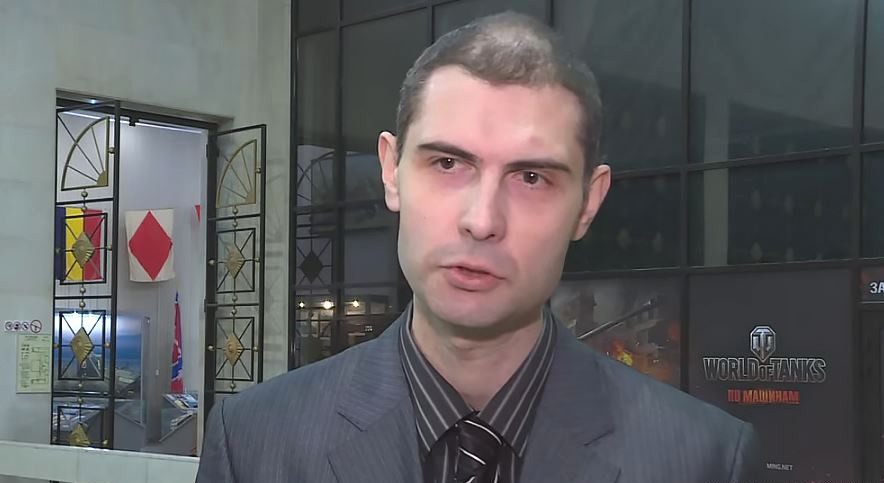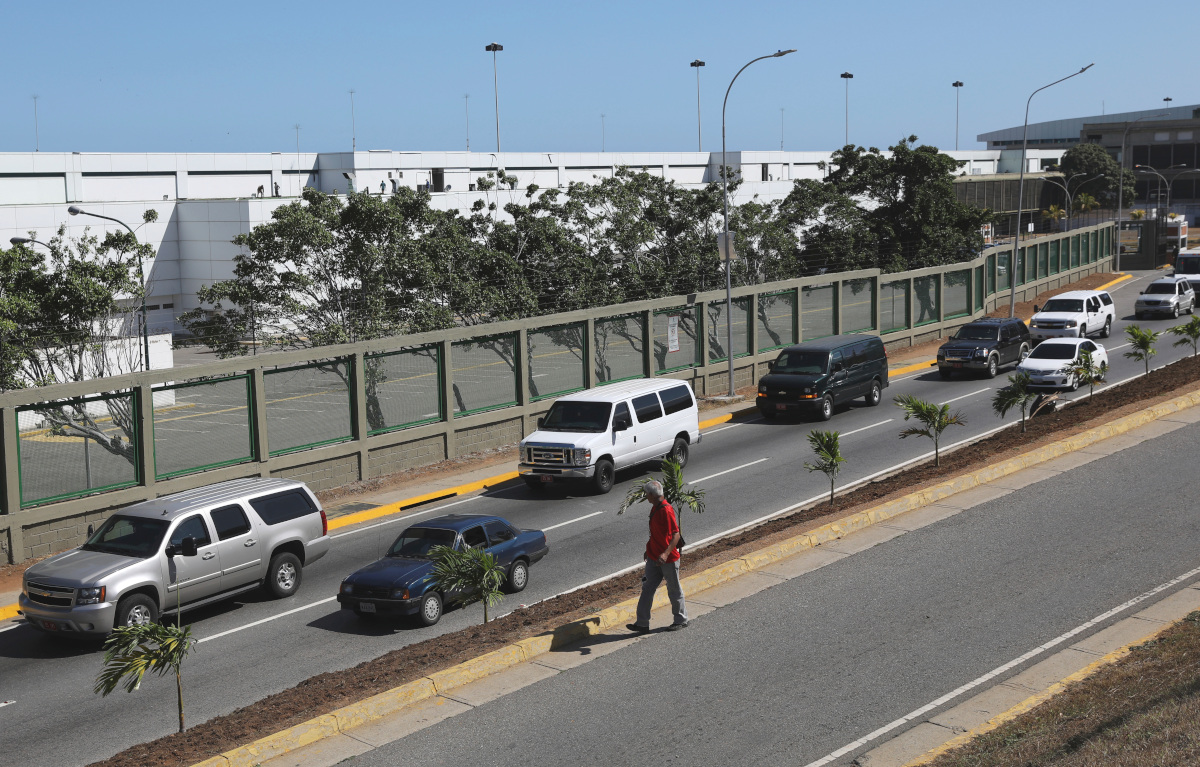Russia has reportedly sent a contingent of shadowy private military contractors to Venezuela to help President Nicolás Maduro fend off a challenge to his authority from the President of the country’s National Assembly, Juan Guaido. It’s unclear what their exact orders might be, but whether they’re in the country to protect Maduro himself, assist government security forces, stymy a U.S. military intervention, or something else, these mercenaries only add an additional layer of complexity to the still-evolving crisis.
On Jan. 25, 2019, Reuters reported that individuals linked to the now infamous Russian private military company Wagner were in Venezuela. The story cited Yevgeny Shabayev, the head of the Khovrino Cossack organization, who has his own background as a soldier of fortune and routinely speaks to the international press about Russian mercenary activities, as well as anonymous sources.
Cossack organizations in Russia are quasi-official, semi-autonomous bodies of Slavic peoples that have historically contributed armed personnel to serve in wars and as internal security forces at the direction of the government in Moscow. Many of these groups continue this tradition today to varying degrees, sending individuals to fight on behalf of pro-Russian interests in conflicts in Chechnya, Georgia, and Ukraine.
“Our people are there directly for his protection,” Shabayev told Reuters, adding that the mercenaries were there specifically to prevent rogue members of Venezuela’s security forces from detaining Maduro. He also claimed that Wagner had around 400 individuals in the country.

After being in the grips of a devastating economic crisis for years, Venezuela plunged into an all-new period of upheaval on Jan. 23, 2019, when President of the National Assembly Guaido declared himself Interim President of the entire country and quickly received recognition from the United States, Canada, and a number of countries in Latin America. Maduro, who has long accused the U.S. government of plotting his overthrow without providing any hard evidence, has refused to step aside and still commands the loyalty of the vast majority of the country’s military and national police.
In addition, Maduro has called for U.S. diplomats and their staff to leave by tomorrow, Jan. 26, 2019. The United States has ordered nonessential diplomatic personnel to leave the country, but has refused to shut down its Embassy and other facilities entirely, arguing that Guaido is the country’s legitimate leader and has asked the U.S. government to stay. An emergency United National Security Council meeting on the issue is scheduled for tomorrow.

The Wagner mercenaries had already begun arriving earlier in the week before this standoff emerged, according to Shabayev. Other sources who spoke to Reuters said that the total number of contractors was far smaller than Shabayev’s estimate and that they had arrived in multiple groups, including one that only touched down “recently.” These individuals also did not confirm that these personnel were guarding Maduro.
Maduro’s regime is a major regional ally of Russia’s and publicly available information shows a relatively steady stream of Russian government and Russian-registered aircraft flying to and from the country since the beginning of December 2018. Reuters reported that two Russian Air Force aircraft, an Antonov An-124 and an Il-76, had been in Venezuela between Dec. 10 and Dec. 14 and that another Il-76 had been in the country between Dec. 12 and 21, but these are almost certainly unrelated to the deployment of any Russian mercenaries.
Russia sent a pair of Tu-160 Blackjack heavy bombers to Venezuela between Dec. 10 and Dec. 14 with supporting personnel and equipment on board an An-124 and an Il-62 airliner. The report of an Il-76 during this timeframe may be a mistaken reference to the Il-62. The other reported Il-76 in the country around the same time could have been supporting that mission or otherwise delivering Russian-made weapons and other military equipment to the Venezuelan government as part of existing contracts.
More to the point, it would be unusual for the Russia military to so visibly deployment of members of Wanger. This group, and others like it, exist specifically to give the Kremlin a plausibly deniable means of intervening in sensitive conflicts. Russia exploited these murky links and very promptly disavowed a group of Wagner mercenaries after the U.S. military killed hundreds of them in a skirmish in northeastern Syrian in February 2018.

Reuters’ own sources said that the contractors used chartered aircraft to take them from unspecified locations where they had been conducting operations to the Cuban capital Havana. There they boarded commercial flights bound for Caracas.
That’s not to say that the Kremlin isn’t directly involved in their deployment or that they haven’t been potentially overseeing their activities closely. On Jan. 23, 2019, a Russian government Il-96-300 belonging to the country’s Special Flight Detachment also appeared in Havana after taking a somewhat circuitous route from Dakar, Senegal via Asunción, Paraguay.
Russia’s Special Flight Detachment also operates the specially configured Il-96-300PUs that fly President Vladimir Putin around and a similar in form and function to the U.S. Air Force’s VC-25A Air Force One presidential aircraft. The reason for the plane’s trip to Cuba or stops before arriving in Havana are unclear. Paraguay has recognized Guaido and Senegal has not publicly announced its support for either Venezuelan leader.
It could potentially have something to do with the movement of Wagner personnel from Africa to Venezuela. In March 2018, there were images and reports that the group was training personnel or otherwise conducting operations in Central Africa Republic (CAR). Two months later, images appeared showing what appeared to be the same personnel near that country’s border with Sudan.
Then, in December 2018, purported Wagner mercenaries appeared on the streets of the Sudanese capital Khartoum, reportedly to help put down massive protests against the government there. Both CAR and Sudan are essentially on the other side of the continent from Senegal, but that country could still have served as an intermediate stop for any individuals heading toward Venezuela.
So far, no photos or video of any Russian mercenaries in Venezuela have appeared online that might help confirm their presence in the country and the scope of their deployment. But it would make good sense and be in line with the Kremlin’s increasing use of groups such as Wagner as a low-cost, readily deniable force for supporting its partners overseas without serious risk of becoming embroiled directly in any particular conflict. These proxies have become a cornerstone of Russia’s so-called “hybrid warfare” tactics.
Mercenaries linked to the Russian government have bolstered pro-Russian separatist groups in Georgia and Ukraine, helped prop up Syrian dictator Bashar Al Assad when his regime was at its most fragile, and more recently helped Sudanese strongman Omar Al Bashir in trying to quell major nationwide protests. Venezuela’s Maduro is one of Russia’s few major allies in Latin America and it is certainly in the Kremlin’s interests to keep him in power.
Even just giving Maduro a more reliable security detail, as Shabayev said was the case when talking to Reuters, could be important. He was the target of an assassination attempt using explosive-carrying drones in August 2018. There were reports that some Venezuelan security forces had sided with anti-government protesters or otherwise abandoned their posts in the days leading up to Guaido’s announcement that he was assuming the role of Interim President.
There remains no clear indication that the U.S. military is planning to intervene in the crisis, or even deploy forces to provide additional security at the American embassy in Caracas or other diplomatic sites. Still, it seems hard to believe that there has been no crisis response planning or movement of forces into position to better respond to various contingencies already.
A U.S. Air Force C-17A Globemaster III transport, using the callsign Reach 543, was visible using online flight tracking software making a highly unusual trip from Naval Station Norfolk in Virginia area into the Carribean on Jan. 24, 2019. It disappeared from radar before reaching its final destination, but was seen heading back to the continental United States just hours later.
Norfolk is home to one of the U.S. Marine Corps’ Fleet Antiterrorism Security Teams, a crisis response unit also known as a FAST Company. There are two more FAST Companies at the nearby Naval Weapons Station Yorktown in Yorktown, Virginia. Marine FAST elements regularly deploy overseas to bolster security at American embassies and other diplomatic facilities, as necessary. There is a major U.S. Navy SEAL presence at Dam Neck in Virginia, which is also close by.

Regardless, the presence of Russian contractors could change the risk calculus for any such operation. They could also present a deterrent to any potential U.S. government plan to try to more forcefully eject Maduro from power.
Maduro’s Russian benefactors could have sent the mercenaries to guard the Venezuelan leader for fear that he may be increasingly at risk of ending up like the late former Panamanian President Manuel Noriega. In 1989, the United States launched Operation Just Cause into Panama to oust Noriega after a protracted crisis that has many similarities to the present situation Venezuela, including a disputed election.
The murder of an off-duty U.S. Marine by Panamanian forces at a roadblock and the decision by Panamanian authorities to detain and abuse a U.S. Navy lieutenant and his wife, incidents that both occurred on Dec. 16, 1989, helped provide additional justification for the invasion two days later. There is a risk of similarly dangerous alternations in Venezuela now if Maduro orders government security forces to remove the remaining Americans from the Embassy in Caracas or any other diplomatic facilities.
In the ensuing operation in Panama more than 30 years ago, American special operations forces rushed to detain Noriega. Noriega initially evaded capture by fleeing to the Vatican embassy in Panama City, where he endured 10 days of American psychological warfare tactics before finally surrendering on Jan. 3, 1990.

Russia could also use the mercenaries as a way of testing the waters for their own larger, overt military deployment on behalf of Maduro, similar to its use of “Little Green Men” ahead of taking over Ukraine’s Crimea region in 2014. As noted, Russia has a vested interest in keeping its ally in power in Venezuela. After the deployment of Tu-160 bombers to the country in December 2018 there was a report that Venezuelan authorities had offered the Kremlin a more permanent basing deal.
This would give the Russian an unprecedented ability to challenge the United States in its own hemisphere, the implications of which you can read more about here. Having a formal base in the country could only provide Russia a more permanent foothold to help support Maduro’s regime in the future. Sending the bombers to the country in the first place was a very visible signal of continued Russian support for the government in Caracas.
Still, if Reuters’ report is accurate, Russia’s active involvement in the crisis seems relatively limited in size and scope for the moment. But, at the same time, we’re only three days into the confrontation between Maduro and Guaido and their respective domestic and international supporters and neither side appears to be inclined to back down.
Whether any Kremlin-linked mercenaries that are actually in Venezuela turn out to be key to ensuring Maduro remains in power or are a prelude to a larger Russian intervention remains to be seen.
Contact the author: jtrevithickpr@gmail.com
